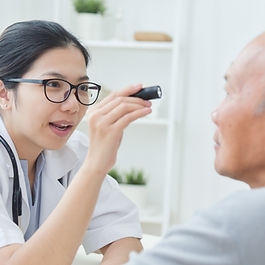Learn About - Category List
11
Records

"While there is no prescription for a PD-specific diet, to maintain overall good health most people living with Parkinson’s disease should eat a variety of whole grains, vegetables, fruits, milk and dairy products, and protein-rich foods such as meat and beans. Also consider including nuts, olive oil, fish and eggs to your diet, for their beneficial fats." - - parkinson.org

People with Parkinson’s disease (PD) sometimes face procedures or surgeries due to other medical conditions not related to PD. These could be relatively simple procedures such as a colonoscopy or endoscopy, common surgeries such as cataract removal, gall bladder removal or hernia repair, or more complex surgeries such as open-heart surgery or transplant surgery.
APDA
https://www.apdaparkinson.org/article/surgery-complications-and-parkinsons-disease-parkinsons-disease-and-preparing-for-surgery/

Most people with Parkinson’s begin a course of treatments to help manage symptoms. Treatments often include a unique combination of medications and surgical therapies as well as exercise and other complementary therapies like acupuncture, speech and language therapy, physical therapy and occupational therapy. - Davis Phinney Foundation

Dyskinesia is uncontrolled, involuntary movement that may occur with long-term levodopa use and longer time with Parkinson's. Not everyone will develop this complication, and the experience of dyskinesia varies. New and emerging treatments aim to help avoid dyskinesia.
- https://www.michaeljfox.org/news/dyskinesia?dyskinesia=

Young onset Parkinson's
Young Onset Parkinson’s disease (YOPD) occurs in people younger than 50 years of age. Most people with idiopathic, or typical, PD develop symptoms at 50 years of age or older.
YOPD affects about four percent of the one million people with PD in the United States. Symptoms are similar to late onset PD but it is important to understand the challenges YOPD individuals often face at a financial, family and employment levels.
https://www.parkinson.org/Understanding-Parkinsons/What-is-Parkinsons/Young-Onset-Parkinsons



